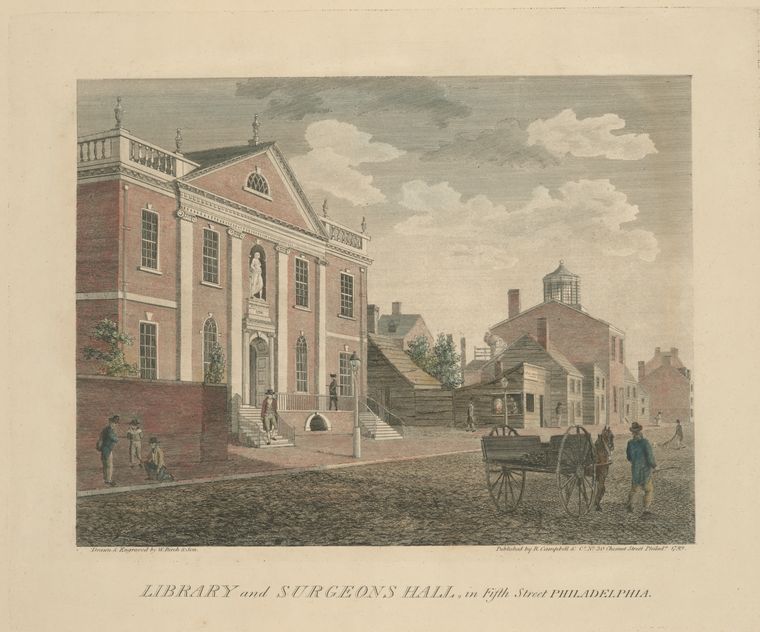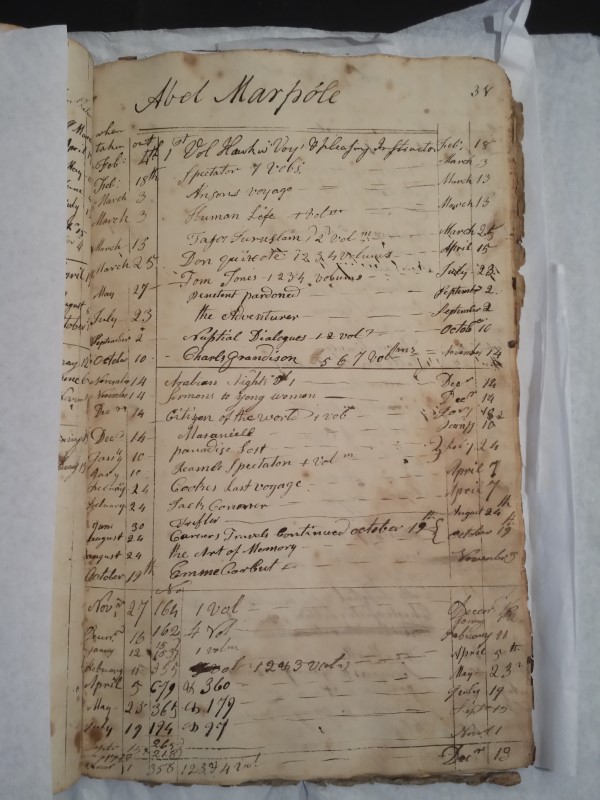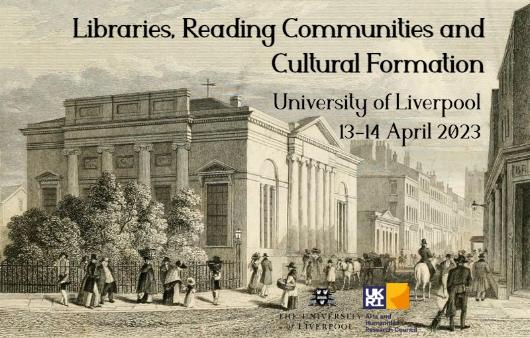Reading and cultural formation in the eighteenth-century Atlantic
Libraries, reading communities and cultural formation in the eighteenth-century Atlantic is funded by the Arts and Humanities Research Council (Project ref: AH/S007083/1, Funded value: £842,708)
About this project
This project investigates the contribution of books to social, cultural and political change in the 18th century. It does so by exploring in unprecedented range and depth the role played by voluntary subscription libraries in the reading lives of communities and individuals across the Anglophone Atlantic between 1731 and 1800.
Organised and funded by the state, libraries are today valued as a vital social good and a fundamental plank of liberal democracy. Yet the modern Public Library (originating in the mid-19th century) is only the most recent solution to the problem of how communities provide themselves with books. Before then, there existed a flourishing, unregulated library culture built not by the state but by groups of autonomous individuals acting from a range of motivations, including libraries built and sustained through private subscriptions.

The Library Company of Philadelphia; engraving by Willlam Russell Birch, 1800; New York Public Library Archive
The first formal subscription library was the Library Company of Philadelphia begun in 1731 by printer's apprentice Benjamin Franklin and a group of like-minded artisans as a means of acquiring expensive books to provoke conversation and inspire intellectual change. Thereafter, subscription libraries rapidly became a major part of the urban landscape, with at least 350 founded in towns and villages across the British Isles and North America by the turn of the 19th century. Subscription libraries were essentially private membership clubs, in which subscribers pooled their resources to acquire a wider choice of books than they could afford individually. Their collections - captured in the library catalogues that are the main focus of this project - constituted material instantiations of readers' shifting interests, helping to reveal the role of newly enfranchised readers in reorganising and extending literary, intellectual and political culture.
Although scholars have long been aware of the emergence of subscription libraries in 18th-century Britain and America, no study of this scale has been possible before. The project will use cutting-edge digital techniques to capture, interpret and make freely available online surviving documentary evidence relating to the books acquired and circulated by more than 80 libraries, founded by communities ranging from tiny rural settlements like Wigtown in Scotland and Fredericktown on the Pennsylvanian frontier, to rapidly growing industrial centres like Belfast and Leeds, and bustling transatlantic ports like New York, Dublin and Bristol. This material will provide unprecedented insights into the dissemination and reception of books across the Anglophone Atlantic in a crucial period marked by Enlightenment, Revolutions, global encounters and technological change.

Union Library Company of Hatboro: borrowing records (1789-90): page for Abel Marpole
Specific aims for the project
The main aim of the project is to collect and make available in a single open access database contextualised bibliometric data on book holdings, membership and book usage at subscription libraries in Britain and North American in the years 1731-1801.
Our findings will be disseminated to a wide range of audiences through scholarly books and articles, online resources developed to support users of the open access database, and a varied programme of public workshops and exhibitions co-designed in collaboration with nine Project Partners - including many of the subscription libraries that survive from this period, such as the LCP.
Outputs will include a major open access database and project website, at least three books and over a dozen scholarly articles, in addition to workshops, academic papers and an international conference planned for the summer of 2022.
Project team
Our international and interdisciplinary team of researchers is led by Principal Investigator Mark Towsey and consists of a core team of two Postdoctoral Research Associates, and a Project Manager in the History Department at the University of Liverpool; a sub-team led by Co-Investigator Simon Burrows at Western Sydney University; and further Co-Investigators at the University of Glasgow, the University of West Georgia, California State University (Long Beach), Muhlenberg College and the American Philosophical Society, along with nine library partners across Australia, the USA and the UK.
The Liverpool team:
Mark Towsey, principal investigator
Sophie H. Jones, postdoctoral research associate
Max Skjönsberg, postdoctoral research associate
Angie Sutton-Vane, project manager.
Project co-investigators
- Simon Burrows, Western Sydney University, School of Humanities & Communication Arts
- Rachel Hendery, Western Sydney University, School of Humanities & Communication Arts
- Laura Miller, University of West Georgia, English
- Kyle Roberts, American Philosophical Society
- Matthew Sangster, University of Glasgow, School of Critical Studies
- Norbert Schürer, California State University Long Beach
- Lynda Yankaskas, Muhlenberg College, Department of History.
Project partners
- The Library Company of Philadelphia, Pennsylvania
- The Library Company of Burlington, New Jersey
- Union Library of Hatboro, Pennsylvania
- New York Society Library
- State Library of New South Wales
- The Birmingham & Midland Institute, Birmingham
- Linen Hall Library, Belfast
- Liverpool City Council, Central Library
- Bristol Central Library.
Events
Libraries, Lives and Legacies

13 April: Subscription Libraries in North America and the British Isles, 1731-1801: Books, Concepts, People, Communities
A one-day symposium featuring pre-circulated work-in-progress papers emerging from the ‘Libraries, Reading Communities and Cultural Formation in the Eighteenth-Century Atlantic’ project.
14 April: Old Books, New Media: Digital Humanities Showcase
A one-day workshop showcasing digital humanities projects exploring the history of the book, and featuring the launch and demonstration of two major new AHRC-funded open-access databases on libraries in the long eighteenth century.
The event is free to attend. You can register for it here.
Past events
18 Feb 2020: One day workshop at State Library: The Subscription Library Movement and the Cultural Origins of the State Library of New South Wales.